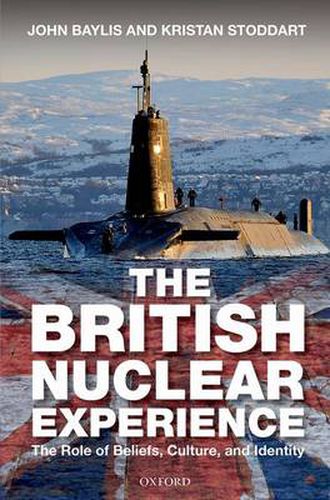Readings Newsletter
Become a Readings Member to make your shopping experience even easier.
Sign in or sign up for free!
You’re not far away from qualifying for FREE standard shipping within Australia
You’ve qualified for FREE standard shipping within Australia
The cart is loading…






Based on a detailed analysis of archives and high level interviews this book looks at the role of beliefs, culture and identity in the making of British nuclear policy from 1945 through to the present day. This book also examines Britain’s nuclear experience by moving away from traditional interpretations of why states develop and maintain nuclear weapons by adopting a more contemporary approach to political theory. Traditional mainstream explanations tend to stress the importance of factors such as the ‘maximization of power’, the pursuit of ‘national security interests’ and the role of ‘structure’ in a largely anarchic international system. This book does not dismiss these approaches, but argues that British experience suggests that focusing on ‘beliefs’, ‘culture’ and ‘identity’, provides a more useful insight and distinctive interpretation into the process of British nuclear decision making than the more traditional approaches.
$9.00 standard shipping within Australia
FREE standard shipping within Australia for orders over $100.00
Express & International shipping calculated at checkout
Based on a detailed analysis of archives and high level interviews this book looks at the role of beliefs, culture and identity in the making of British nuclear policy from 1945 through to the present day. This book also examines Britain’s nuclear experience by moving away from traditional interpretations of why states develop and maintain nuclear weapons by adopting a more contemporary approach to political theory. Traditional mainstream explanations tend to stress the importance of factors such as the ‘maximization of power’, the pursuit of ‘national security interests’ and the role of ‘structure’ in a largely anarchic international system. This book does not dismiss these approaches, but argues that British experience suggests that focusing on ‘beliefs’, ‘culture’ and ‘identity’, provides a more useful insight and distinctive interpretation into the process of British nuclear decision making than the more traditional approaches.